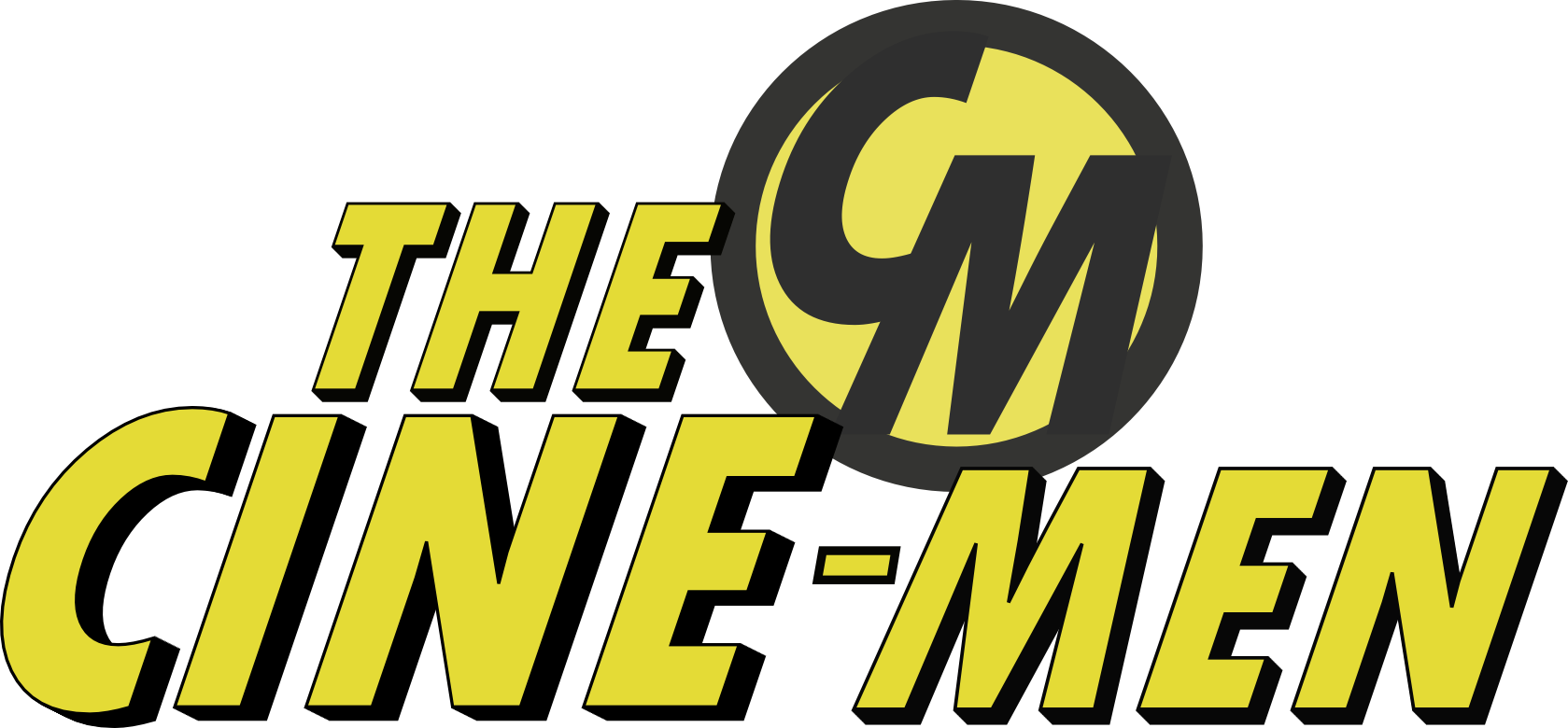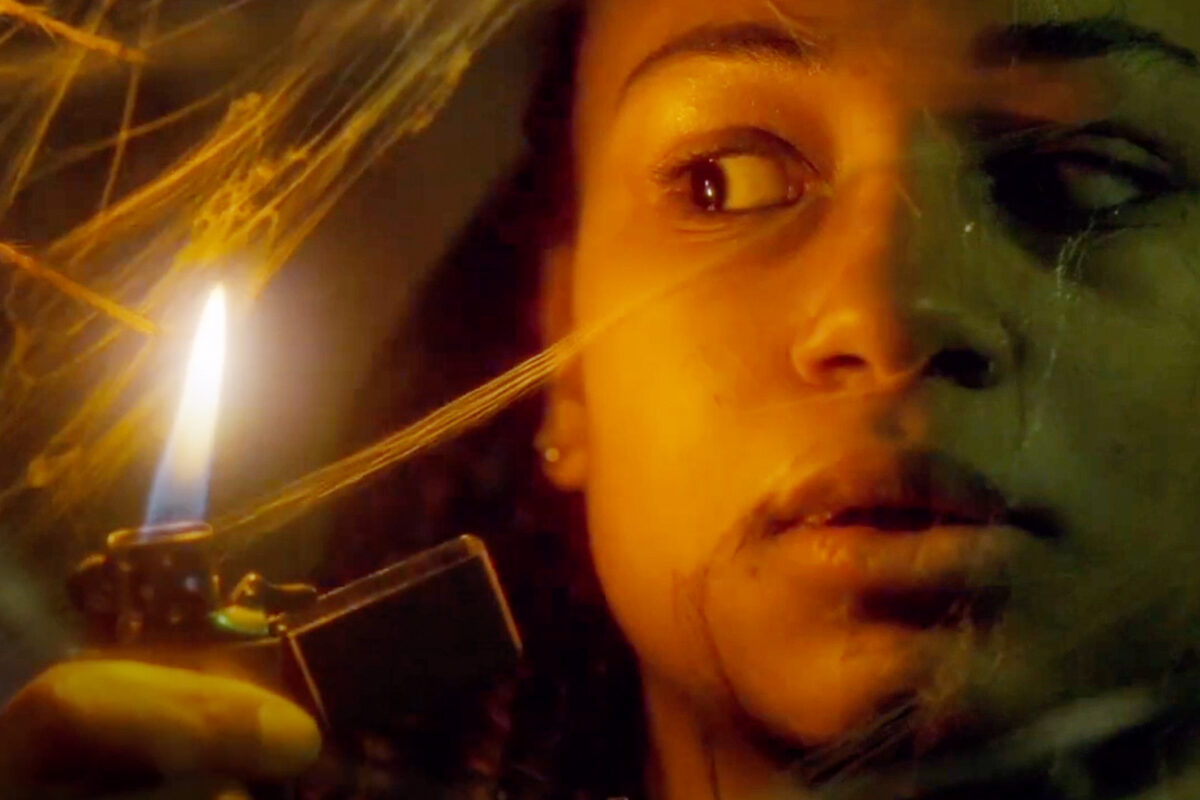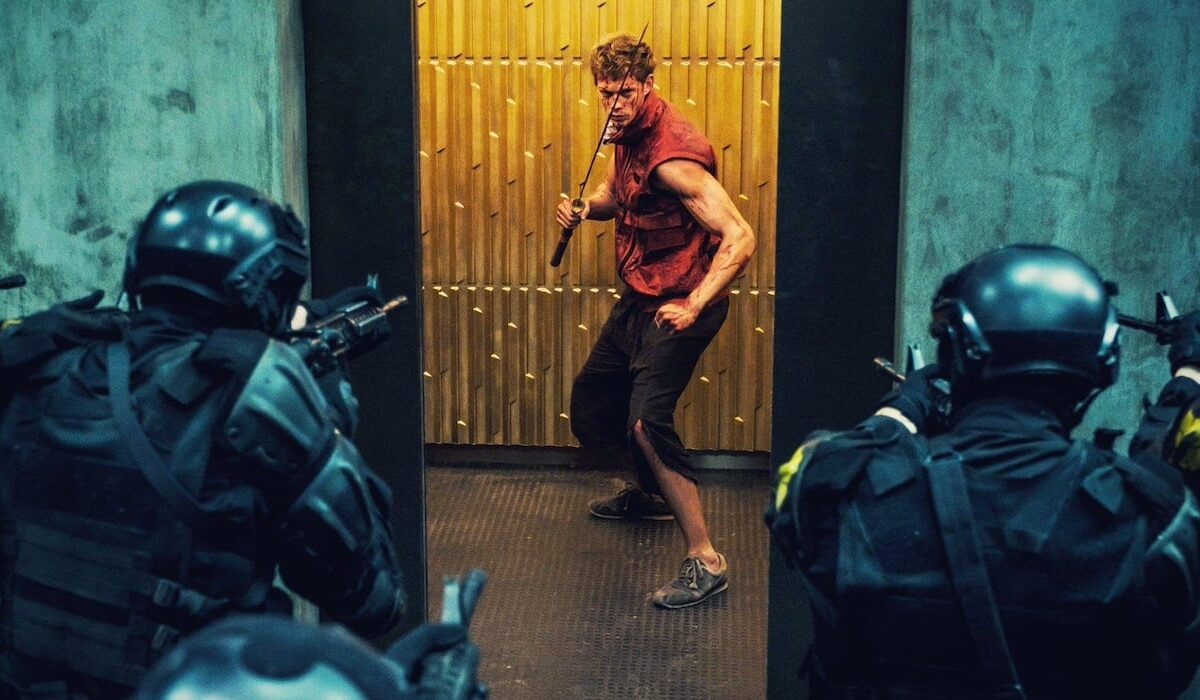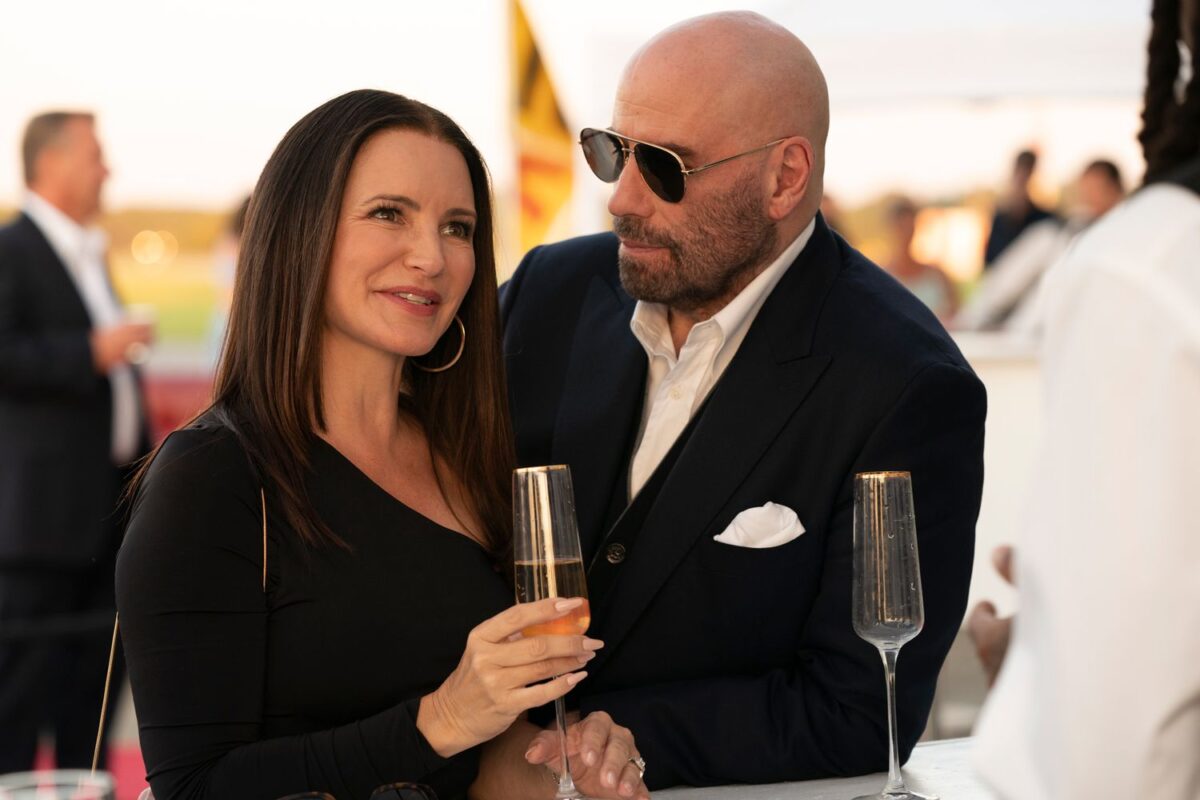
Strange Darling which premiered at 2023’s Fantastic Fest begins as a simple cat-and-mouse thriller between a killer (Kyle Gallner) and his prey (Willa Fitzgerald). But as the film goes on, things become a lot more complex and the viewer finds themselves much further away from where they began. Writer/Director JT Mollner starts off by speaking about his and Musician/film collaborator Z Berg’s experience at Fantastic Fest so far.
JT: Oh- Z and I have really been through it with this movie, like, “are we going to be able to do this together or are we not?”. We’ve really been to hell and back.
Z Berg: Yeah.
JT: And the fact that we’re here today and there’s good feedback coming in, it’s miraculous.
Brian: It’s actually my favorite thing I’ve seen so far. I loved it. I got done and I told my friends that I came here with, that they need to go see this. They all went and Evil Lurks and I said, “Nah, I want to see this.” I was glad I chose that and I saw Evil Lurks this morning at 8:00 which is not an 8:00 in the morning movie. (everyone laughs) But nonetheless, it was great. Y’all obviously shot this on film so can you talk about your choice of shooting on film and also the benefits and what limitations on shooting on film brought to the movie?
JT: So, for me, it’s not a choice; it never has been. It’s what I signed up for; a filmmaker, I want to make movies on film. All my short films are shot on film, except for one for a specific reason but maybe I would have made more movies if I was willing to shoot digitally but I just love the look, I love the feel, I love everything about it. But, most of all, even more than the final product, I love the reverence it brings to the process on set; the actors, the crew, everybody feels like they’re doing something special; it’s like we’re at church, you know. So, I just love that whole thing and I believe that this movie needed it because we had this aesthetic we wanted that was definitely not from this time. It was very similar to Z’s music and we had something of another time, another era that we wanted but I would say that it doesn’t increase the budget on a movie like this much because there’s one line item at the end of the film, but then I saved money in post [production], like lots of money. The look we wanted was what we got in camera so we don’t have to find the look in post production and so it does limit you in a way but the limitations it gives me on set actually strengthen the movie since I can only have a 10:1 shooting ratio or 7:1 shooting ratio instead of a 30:1 shooting ratio. It means I can get my shoot done in less days and it means I have to prepare. So, I spent months preparing, we shot this meticulously and I don’t have the luxury of going in and just shooting and shooting and shooting and then finding the movie later. But, I’ve never shot that way, so I wouldn’t know even how to do it and this is the way I like to make movies. It helps me stay disciplined, I think, and I just love it.
Brian: That’s actually a fair answer, I understand that. Speaking of the look, the name that popped in my head, you know in the credits was Giovanni Ribisi, the cinematographer, so how did that come about, working with him?
Z: Yeah, how the hell did that happen? (laughs)
JT: Well, Steve Bellamy, the president of [Motion Picture and Entertainment at] Kodak, introduced me to everybody, it’s crazy. It seems that everyone I collaborated with, I met through this guy. He’s an amazing guy, he brings people together. He invited me to the ASC [American Society of Cinematographer] Awards a few years ago. They always have a table, they invite a few filmmakers and they always have three or four seats for filmmakers. I sat down at the ASC Awards, and I’m really obsessed with it because I wish I was a cinematographer, you know. I love the films of visual language and I just love when movies look a certain way. So, I sat down and Giovanni Ribisi was there, sitting next to me, and I’m a huge fan of his as an actor, I just think he’s an incredible actor. I started of course angling immediately to convince him to be in one of my movies. We started talking that night and I realized he was just a big cinephile, a film dork and I think at the time he was watching a movie called Kwaidan and then we were talking about the lensing and The Servant and we had all these similar favorites.
Z: That movie is one of my favorites.
JT: It’s so good, right? And we were talking about depth of field. And we just became buddies and I got his number. So, I’d watch movies at night and ask him, “have you seen this one?” and he’d write to me “have you seen this one?”. It became that kind of relationship where we talked about literally nothing but movies. I mean, once and while we would check in like, “how’s your family?” or something but really all we talked about was movies. And then, he said “I’m a cinematographer” and I was like “really?” and he goes “yeah, I’m an actor but that’s not what I love to do the most anymore. I like to shoot movies.”. So, he invited me over to his post production house called Stellar Scope and he invited me over to see his gadgets and he had all these film cameras. He had scanners, and he had a theater and he goes, “you see all this stuff here? I shoot commercials, I shoot music videos, I’d like to make a movie at some point.” and I said, “would you like to make one of my movies? Can we make a movie?” and he said “just send me stuff, if I like it I would love to do a film but it’s got to be great.”. I think I’ve sent him four or five scripts over the course of two years and then sent him this and he called me and said “let’s do it.”. The initial plan was for him to produce the movie and raise a little money for it and use his infrastructure to shoot it and I would direct it and we were going to make it for probably a million bucks. I said it to my agent and my agent said “no, you’ve finally written something that has a little bit of commercial value. I think I can get you a little more than that.”. So, we really caught fire fast, we hooked up with Roy Lee and Steven Schneider, the producers, and they took it to three places and they all wanted to make it, which was insane. I’ve been development hell on movies for years between my first film and this one. They said “we’re going to make a movie with Miramax” and of course at that point we didn’t need Giovanni Ribisi to shoot it or produce it because the movie was getting financed, but I wanted to work with him because I had seen what he was capable of. So, I said “I still want Giovanni to be the cinematographer, still would like him to be a producer on it” and they welcomed it with open arms and it was a trip. I’ve been really lucky, I’ve worked with some amazing DPs [Director of Photography] and the way the movie looks is exactly what I had in my head. I’ve been lucky, for better or for worse, for that to have happened on pretty much everything I’ve done. But this just seems like it was realized to a greater extent and I think partly it was because he had all this equipment, he had all this infrastructure. When Martin Scorsese makes a movie, they give him $200 million or whatever and he can spend a year with his DP, testing film stocks and doing all this stuff but on a movie that I make, usually we have two days of film tests. So we got to go into Kodak, we got to go into Panavision and tested some films. Giovanni was able to make it feel like a $100 million dollar movie just in the developing process because we were able to spend six months testing, testing, testing and just dialing in the look and figuring out exactly what lens was best, exactly what film stock was best, exactly what post process was best. By the time we started shooting, we had it all figured out. I’m very grateful to Giovanni for that.
Brian: Well, the film looks phenomenal.
JT: Thank you.
Brian: I mean, it pops on the screen and if you don’t see this movie in the theaters, you’re really doing it a disservice. I do want to talk about music because…
Z: Because I’m here. (laughs)
Brian: Well, not just because you’re here but also I really feel like the music is a vital part of the story telling. So, I’m really curious, how did you come up with the sound of the story? And also, were you given the script, did you have kind of an idea of where the story was going to help write your songs or did you write the songs separate from knowing kind of what was going on with the story?
Z: A little bit of all of the above. JT sent me the script, kind of way before he even should have, we also met randomly also through Steve Bellamy. And we had a long conversation about film and music in film and you know, we went home and watched and listened to each other’s perspective things. Then two years later I get a text and it says, “I hope this isn’t weird, but I wrote this movie.” And so he sends me the script, I read it that night and I’m just like, “I’m so fucking in.” And then, as he said, the speed at which this sort of started happening was rather staggering like two weeks later there were producers and a month later there’s Miramax and a month later you’re shooting. I just kept saying, “Is this The Player? This is not how this works anymore. This is insane.”. Initially, he had written some of my old songs into the movie. It’s weird because I wasn’t seeing dailies, I wasn’t there for the shooting but I just kept writing songs for each scene that he was working on as he was shooting it, I just kind of knew what it was. Like, I read the script, I was just like, “first of all, it’s kind of me” (everyone laughs) I’m a monster. It was weird, there was never a moment where we weren’t seeing the same thing. I just kind of read that script and I could just hear it in my mind. It was really satisfying because I have a panic attack anytime I play anything for anyone and everytime I would send him this song and be like, “So, you’re probably going to hate it, I think it’s really stupid.” and then he would call me and say, “like, what the fuck? You’re in my head.”. What’s really weird is most of the songs I wrote for the movie, but there were a few songs that I had sort of already written in the past that I realized, “how did I not write these for this movie?”. Honestly, it was like some cosmic shit. (laughs)
Brian: You know like when you listen to songs that are tied to movies, whenever you hear it, if you’re a cinephile, your mind goes straight to the movie. (Z agrees and laughs) That will happen with this film and that music because they go so hand in hand.
Z: Yeah and I’m happy for that too because in my mind they’re so inextricably linked and I can’t imagine one existing without the other.
JT: I was going through a lot on set, everybody has their story on every movie, not to cut you off, but I want to say something about her music. I would get these mp3s and I was just so blown away, like usually everybody I work with, no matter how talented they are, I have to give them endless notes because it’s got to be what’s in my head and we’ve got to figure that out and it’s hard. And I wanted her music to be a certain way like it needed to be. I’m not somebody who’s like, “Listen, do your thing.” like it had to be a certain way and I thought we were going to go through a lot of me saying, “Z, I know you’ve done this before but it kind of needs to be this.” and there was nothing. We had an initial discussion and I was like, “imagine if Z meets Leonard Cohen meets Julie Cruz.”. We had this crazy thing where we were talking about different influences and just somber tone and the beauty of the movie, but I said I wanted her to find her own way of getting there and then she started sending me these songs and I would just almost cry because they were so beautiful and they were so sad, so sad. I would get a song and be like, “I know where this is going” and “I know where this is going” and then I got so depressed. There was a point where she stopped sending me songs (everyone laughs) because we were done and I was like,”Can you just keep writing songs for me?”. Because they were just so beautiful. It’s the craziest thing that’s happened here. I’m like this atheist who doesn’t think there’s any reason or order to anything and it just felt like so much was meant to be on this. It was really interesting how much this came together versus reason and I wrote one song of hers in the movie called “Into The Night” and she was kind enough to license that to us for the film and then she wrote all this other music and it’s just beautiful music.
Brian: Well, creatively I think both of you are firing on all cylinders with this movie, musically and visually. I do thank y’all for your time, it was a great film.






